From the archive
Click on the images to enlarge them.
A 19th century rhyme picture book of Around the World in 80 days (J. Vlieger)
It is well known that the theatre shows based on the books by Jules Verne (Around the world in 80 days, Captain Grant’s children, A journey to the moon, Michael Strogoff) were very popular in the last decades of the 19th century. These shows attracted large crowds in the towns in the Netherlands, and were programmed to coincide with the annual fair.
The popularity of these shows inspired publishers like J. Vlieger in Amsterdam and Schalekamp in Haarlem to publish rhymed picture books, which had no direct relation to the theatre shows, but referred to them. These summarized the story in 10–25 pages of rhyme. A number of attractive colorful lithographs served as illustrations.
It is logical that only few of these vulnerable, undated, books have survived to our times. Few copies are therefore known and possessed by Dutch Verne collectors of the picture book of Around the world in eighty days adapted by P.J. Andriessen.
It was found out only recently that at least two editions exist of this rhyme picture book (see pictures below), both undated. The one shown in the upper pictures seems older, as would appear from the Dutch spelling.
Cover, title page and first page of the first edition
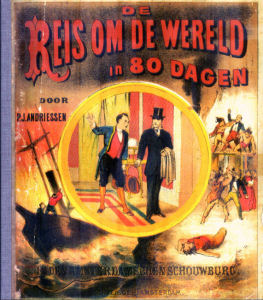
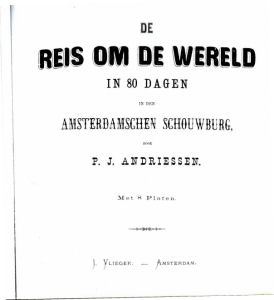
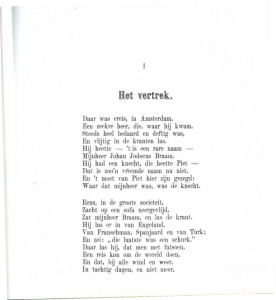
Cover, title page and first page of the second edition
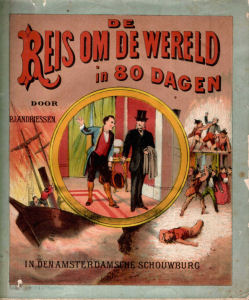
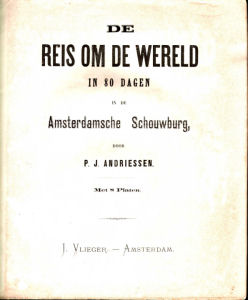
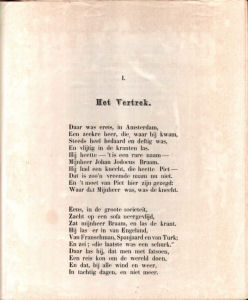
In this adaptation, Phileas Fogg and Passepartout are replaced by a typically Dutch Mr. Johan Jodocus Braam and his servant Piet. It is not known whether the same fantasy names were used for the main characters in the show in the Amsterdam theatre. Who can provide any information?
De Reis om de wereld in 80 dagen in de(n) Amsterdamsche(n) schouwburg by P.J. Andriessen. With 8 plates (by G.J. Bos). The lithographs were printed by L. Van Leer & Co., Haarlem. Published by J. Vlieger, Amsterdam, 25 p. Thanks are due to Piet Akkerman.
